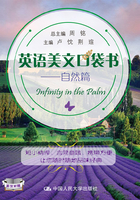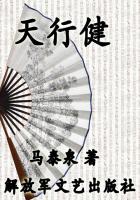10,000. The Council realized that the sum had become too small,owing to the great expansion in trade, and that it furnished only1.56 per cent of the total Municipal revenues, and in 1897 made thefollowing proposal, “That the entire collection of wharfage dues onall classes of trade be undertaken by the Imperial Maritime Customs,and from the proceeds thereof one half of the amount realized onthe "domestic trade‘ be payable to the Taotai as cost of collection, theremainder, i. e. all the dues on foreign trade together with one half thedues on native trade, being remitted quarterly to the Council.“The Taotai gave his consent to the arrangement.
The French Municipal Council became a party to the proposalon condition that “of the total sum handed over by the Customsauthorities, after deduction of the Taotai"s share of native trade duesand cost of collection, 25 per cent of the balance should be handedover to the French Council.“This arrangement was approved by the Ratepayers, and workedsatisfactorily. In 1899 the Council derived from this source of revenueTls. 135,762.65, as compared with Tls. 69,900.75 in 1898.
The Council, however, needed a larger revenue as the Settlementgrew. It was difficult to increase it by direct taxation, inasmuch asthe general Municipal rate had already been raised from 12 to 14 percent. Such being the case, the solution of the problem seemed to be inincreasing the indirect taxation, or in other words, the wharfage dues.
It was proposed therefore to amend the bye-law stating that such duesshall not exceed one-tenth of one per cent of the value of the goods,so that it would read three per cent. of the five per cent ad valoremCustoms duty. The Council did not anticipate any great objectionto the change, and estimated it would result in a very considerableincrease in Municipal revenue. The plan was endorsed by the FrenchMunicipal Council on March 17th, 1921.
Contrary to expectations, the bye-law met with the same receptionas the bye-law concerning the Press. It failed to pass in 1921, for wantof a quorum at the special meeting of Ratepayers, and again at theRatepayers‘ meeting in 1922 for the same reason. In 1923 considerableagitation had been stirred up among the Chinese against it, and thecommissioner of Foreign Affairs had forwarded to the Senior Consul aprotest by the Chinese General Chamber of commerce.
The bye-law met with the same fate in 1924 and 1925, making itimpossible for the Council to raise additional revenue in this way.
Licensing Exchanges
A third bye-law in regard to licensing the Chinese Produce andStock Exchange was not intended for increase of revenue, but for thepurpose of protecting the Chinese community from bogus speculation.
The French Concession had already adopted a regulation for thelicensing of Exchanges, and as a result many of the financially unsoundExchanges had been eliminated.
Even the Peking Government had telegraphed the commissionerof Foreign Affairs instructing him to consult with the Consular Bodywith a view to securing its co-operation in controlling the Exchangesin the Settlement. The Council framed a measure against unrestrainedspeculation and gambling and amended bye-law XXXIV so as toinclude the words “Stock and Produce Exchange.”
This was submitted at special meetings of the Ratepayers in1922, 1924 and 1925. It met with vigorous opposition from theChinese community, and one can only interpret this as meaning thatthe Chinese were more and more inclined to take an antagonisticattitude to any new proposals of the Council. The foreign Ratepayersmanifested no interest in the matter, and the amendment was nevercarried from the usual lack of a quorum whenever it came up forconsideration at the special meetings.
Legislation in Regard to Child LabourThe Council found it necessary to take some action in regard tothe problem of Child Labour in factories and mills. The conditions oflabour since the introduction of steam industries into Shanghai hadbeen far from satisfactory, but the blame for this must not be attributedentirely to the foreign employers. The Chinese had established factoriesand mills before the foreigners obtained the right to engage in suchindustries by the treaty made between China and Japan in 1896. InChinese owned factories and mills, child labour had always existed andit was not introduced for the first time by the foreign mills. This pointis sometimes overlooked.
It is true, however, that the conditions of labour in Shanghai, withthe possible exception of some of the factories in the Settlement, wereworse than in many other parts of China. This produced a good dealof criticism in Europe and America, and caused discontent among theworking classes.
The conditions were brought to the attention of the Chairman ofthe Shanghai Municipal Council in 1922 by Miss A. Harrison of theY. W. C. A. At that time, the Chairman expressed the view that “theCouncil should give a lead in the matter by adopting a sympatheticattitude towards actions to limit some of the abuses with which theemployment of child labour is fraught.“When the matter came before the Chinese General Chamber ofcommerce and the Cotton Mill Owners Association, they stated thatthey had already taken steps urging the Peking Parliament and theMinisters of Interior, and of Agriculture and commerce to take actionfor the passing of bills on the subject in Parliament. There the matterrested for a time.
It was taken up again by the Women"s Clubs of Shanghai, bothforeign and Chinese, and as a result the Municipal Council decidedto appoint a commission “to go into the whole question and toreport thereon in due course, with recommendations for the Council"sconsideration.“A very representative committee was appointed, and had theadvantage of obtaining the co-opertion of the well-known socialworker, Dame Adelaide Anderson, as a member of the commission,with the approval of the Municipal Council.













